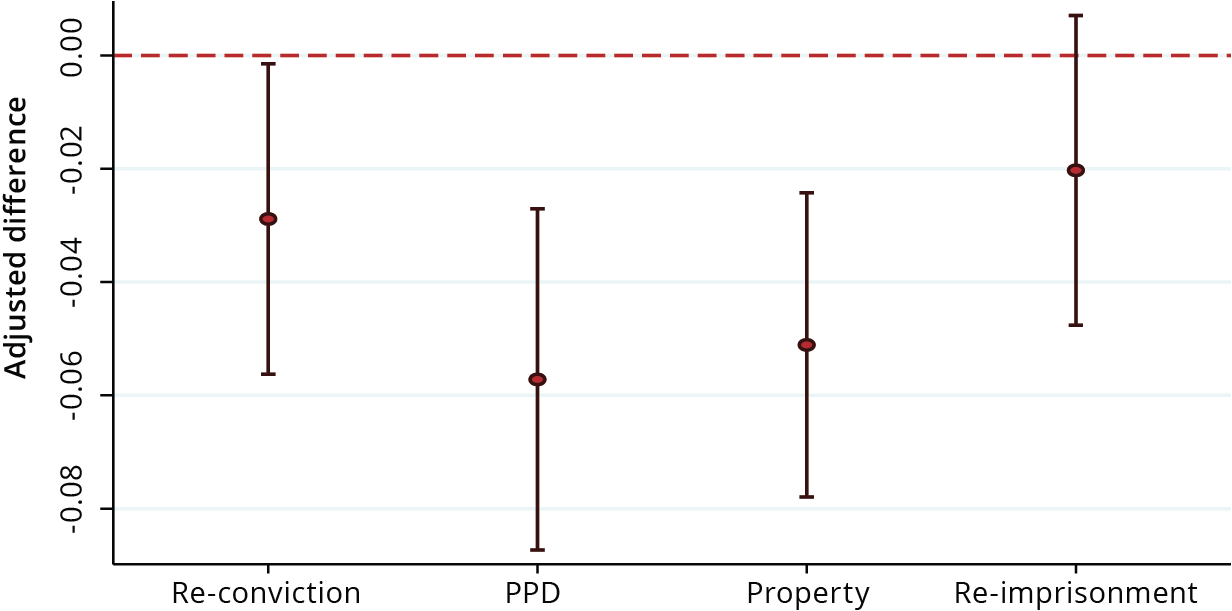Summary
Background
In New South Wales (NSW), most prison inmates have very little vocational training (VT) or previous work experience. To improve their prospects of finding work post-release and reduce recidivism, adult correctional facilities in NSW offer a traineeship program. Traineeships are usually 12 months in duration and are available across a variety of different industries, including business administration, construction, transport and logistics, engineering and food processing. Upon completion, trainees receive a formal qualification and a certificate of program completion.
The aim of this study is to explore the relationship between traineeship participation and recidivism. The recidivism of trainees is compared with ex-inmates who were eligible for a traineeship but who did not participate. There are four measures of recidivism:
- Re-convicted of a new, proven offence of any type;
- Personal, property or serious drug offending (PPD);
- Property offending; and,
- Re-imprisonment.
Key findings
The figure displays the difference between the trainees and comparison group for each recidivism outcome, after adjusting for a wide range of control variables. The vertical bands around each result represent the 90 per cent confidence interval. The dashed red line indicates no difference in recidivism between the trainees and comparison group.
Overall, the results for each recidivism outcome are below the dashed red line, which indicates that trainees are comparatively less likely to re-offend. Within 12 months of release from prison, relative to the comparison group, trainees are 2.9 percentage points less likely to be re-convicted with any new offence, 5.7 percentage points less likely to commit a personal, property or serious drug offence and 5.1 percentage points less likely to commit a property offence. Each of these reductions is statistically significant and persists for 24 months after release from prison. Additional results indicate statistically significant reductions in recidivism among ‘high-risk’ trainees, trainees released in the Sydney metropolitan area and older male trainees.
Conclusion
Trainees are less likely to re-offend, especially for PPD and property offences. However, the results should be interpreted with caution. While the regression modelling includes a wide range of control variables, it is not possible to rule out unobserved differences between the trainees and comparison groups. Consequently, the results should be interpreted as an associative, rather than a causal, effect of participating in a traineeship on recidivism.
